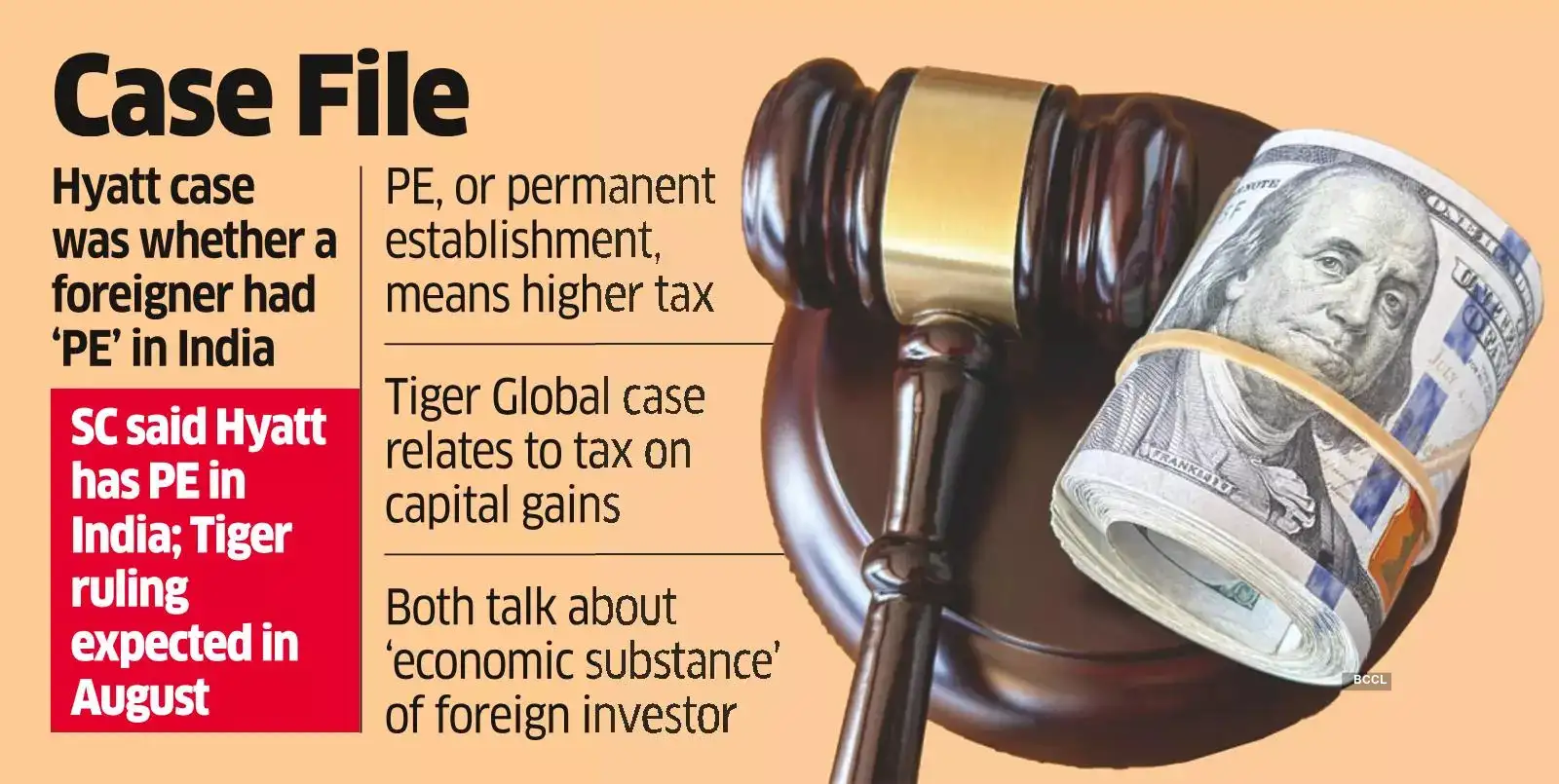However, can the Hyatt ruling have a rub-off on the decision on Tiger?
With the identical bench of judges that dominated on Hyatt to resolve on Tiger-the query has cropped up amongst authorized eagles, tax specialists, and MNCs because the battle between Tiger, an offshore investor, and India's tax workplace nears a closure.
The query stems from the courtroom's commentary that “authorized kind doesn't override financial substance”. This single commentary, based on a number of practitioners, could hyperlink the 2 instances, despite the fact that they pertain to totally different points.
THE COMMON LINK
The Hyatt feud was over whether or not the overseas agency, appearing as a marketing consultant to an Indian resort group, had a ‘everlasting institution' (PE) in India. The court-while observing that “authorized kind doesn't override financial substance” -said it did as Hyatt was not a typical marketing consultant however was deeply concerned in working the resort in India, because of the phrases of the deal. A ‘PE' standing means the overseas occasion would pay tax right here on the portion of its world earnings attributable to India – and never simply the tax deducted from its charges.
The Tiger case, then again, pertains to ‘capital good points' on sale of shares – whether or not a Mauritius entity might escape tax in India merely on the again of the ‘tax residency certificates' (TRC) it obtained from the Mauritian authorities beneath the treaty the nation has with India.
Right here is how the ‘substance versus kind' argument comes up: is TRC, a bit of paper, adequate to keep away from tax by a shell entity which has no workplace, hires few or no staff, and has no energy to make choices? Whereas the TRC provides it ‘authorized kind', in actuality, it might simply be a paper outfit missing ‘substance'.
“The Hon'ble SC regarded utmost significance to ‘substance over kind precept' and in doing so did a deep dive into the paperwork to determine ‘management of operations', precise actions of staff and industrial agreements (like income linked service charges) within the Hyatt Worldwide matter. Substance over kind, management and administration and industrial substance are vital components that take centre stage even in treaty eligibility instances and a ruling within the case of Tiger International is anticipated quickly,” mentioned Ashish Mehta, companion on the legislation agency Khaitan & Co.

A COURT REMINDS
It is broadly believed that armed with TRCs, many abroad personal fairness homes save tax on sale of shares (acquired earlier than 2017) whereas overseas portfolio buyers keep away from tax on earnings from fairness derivatives as their investing arms are included in treaty jurisdictions like Mauritius and Singapore. Many such preparations would come unstuck, if the SC factors at insufficient substance to rule in opposition to Tiger.
“Current rulings, from System One to Nestle SA to Hyatt Worldwide, show a constant judicial strategy: for any tax construction, the authorized framework should align with the precise, factual substance of the association. If not, the courtroom could not grant tax reduction in such instances,” mentioned Ashish Karundia, founding father of the CA agency Ashish Karundia & Co. He feels that submit Hyatt, likelihood is that non-residents can also be required to fulfill a ‘substance' take a look at along with holding a TRC when in search of treaty advantages. “Contemplating the better scrutiny confronted these days, it's important to grasp that the diploma of reliability assigned to TRC is that of adequate proof slightly than an irrebuttable proof. It's adequate, to start with, however neither sacrosanct nor infallible!,” mentioned Karundia.
The tax workplace had questioned Tiger International's stand of not paying tax when it offered shares of Flipkart Singapore (holding shares of an Indian firm) to a different overseas investor (linked to Walmart) on the grounds that Tiger's Mauritius arm (the precise vendor proudly owning the Singapore entity) was solely a car used to keep away from tax.
Agreeing on the potential of the courtroom placing issues beneath the ‘substance' lens, Rahul Garg, managing companion of Asire Consulting, which advises MNCs on tax, finance, assurance, and regulatory issues, mentioned, “The courtroom examined the industrial and operational realities to judge the diploma of management and supervision by the overseas entity. It reiterated that authorized kind doesn't override financial substance. Since it is a elementary requirement that tax treaties must be availed in good religion, these observations might additional assist the Income's case if it may possibly show that the guardian was an lively participant with important management and supervision within the determination making on investments by the entity which recorded the capital good points.”
It is not the primary time the courtroom held substance over kind. However that it selected to provide a refined reminder within the Hyatt ruling is lending itself to interpretation.










